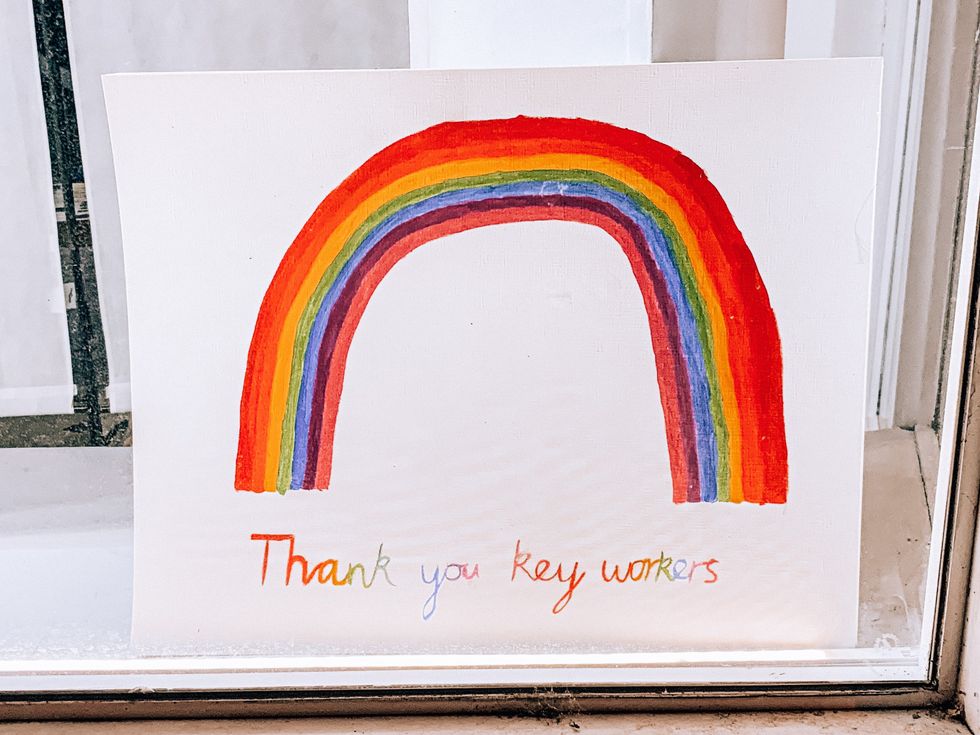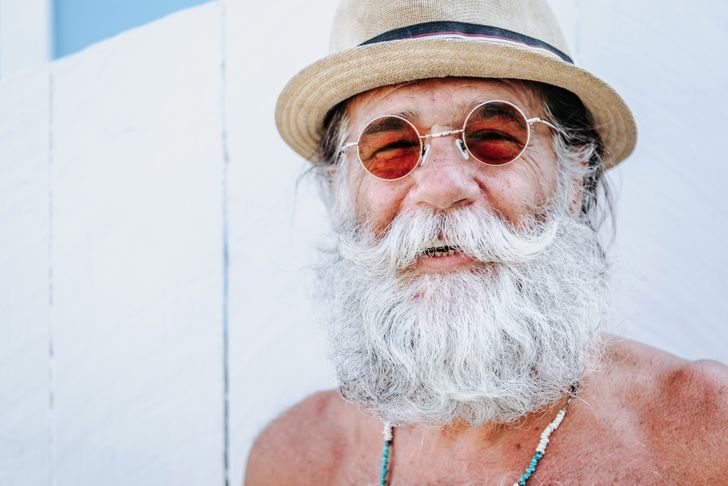Since the novel coronavirus has reached the United States, the country has essentially been turned upside down. Life as we knew it is no longer normal. With lockdowns and people in quarantine nationwide, everyone has had to make sacrifices. Certain professions have been forced to adjust to keep working through the pandemic. I interviewed a doctor, teacher, pastor, stay-at-home mom, and college student to learn about how this disease has changed their working lives.
Dr. Richard Gan, Hackensack Meridian Health JFK Medical Center
On the frontlines of the pandemic, doctors and medical professionals everywhere were left with minimal resources and time to prepare for this horrendous disease that rapidly swept across the country. Working in a hospital in New Jersey, Dr. Richard Gan saw firsthand how coronavirus changed the medical world.
"Coronavirus has created a new normal for the usual routine. No longer will there be crowded waiting rooms. Mandatory PPE (Personal Protection Equipment) for patients and healthcare providers, relying more increasingly on remote telemedicine visits rather than live in the room venue," Dr. Gan said.
As Dr. Gan continues to fight through this pandemic, his takeaway from the experience is eye-opening.
"I have been humbled that something like this could ever happen. Being part of the front lines in the emergency room and intensive care units was an eye-opener to say the least. I have never before witnessed such angst and raw panic. 300 cases in house with 80 on ventilators and people coding and dying. Masks, gloves, gowns, and face shields for everyone to the point no one could be recognized," Dr. Gan said.
Reflecting on normal times, Dr. Gan credits his professors and mentors for implanting the idea that something this severe could ever occur. Of course, back then, no one would have believed them.
"Many years ago, prior to going to medical school, I obtained a Masters degree in Biostatistics and Epidemiology in graduate school. We studied all the great pandemics and plagues of humanity. As a young 22-year old, at times I snickered at some of my professors and mentors about their great passionate concerns such a thing would come again, some day," Dr. Gan said. "I thought at the time how unlikely and foolish their concern was. Bubonic Plague or the Black Death, smallpox or the Spanish Flu of 1918? No way. But they were right and I turned out to be very wrong."
High School Teacher Brad Madden, Bangor Area High School
With schools shut down across the country, teachers were forced to quickly learn how to do online lectures for their students. They were also racing against the clock to get assignments and exams online to submit final grades. With such little notice, Brad Madden was forced to make some huge adjustments to his daily routine in order to cope with these major changes.
"My professional life and routine certainly changed drastically. Generally my days before COVID-19 went from 5 a.m. to 4 p.m. door to school to door again. I have a fairly long commute, so two hours of that is in the car. I will say I enjoyed more sleep during the crisis. Nevertheless, the professional challenges were vast," Madden said. "Not being in front of students made communication extremely difficult. I teach AP Language and Composition as well as yearbook/newspaper and, for me at least, modeling concepts, breaking down texts, having discussions, and then providing immediate feedback with conferencing is essential to improve student writing and design. Making video tutorials, typing up notes on a page, and responding to emails became the new standard; I much prefer being in a classroom."
Coping with these challenges proved to be another obstacle for Madden, but he kept his positive attitude to be a role model for his students, who also struggled in their adjustment period.
"While it was tough, there were so many people who had it much worse, including not being allowed to work at all. Whenever I wanted to complain, I thought about those folks and moved on with my day," Madden said. "Students adapted fairly well. I'm assuming here--but I believe most students would prefer to be in school. They can compartmentalize their lives a bit better. School is school. Home is home. Sports are sports. You get the point. Although, students chose to work at all different times of day. Some were early risers, while others would hand in work or email near midnight. So--maybe I'm wrong and they loved being at home."
As a teacher involved in coordinating school functions and dances, Madden also had to face the reality that his students would not be able to fulfill their high school experiences this year due to COVID-19.
"My main takeaway from teaching during the pandemic is that it's much easier to connect/communicate with colleagues and students when you can be in the same building having shared experiences. Lessons. Lunches. Pep Rallies. Sporting events. Concerts. The school musical. Prom! The students (and teachers) missed out on so much. The strangest part of the pandemic for me was the idea that we were #TogetherApart. Generally when tragedies occur we have one another to lean on. We can see the looks on people's faces and feel their pain and sorrow. We can understand each other better. The online world, despite email responses, video conferences, likes, and shares really is no substitute for the connectivity of human interaction," Madden said.
Pastor Christopher Priestaf, Mount Bethel Church
To comply with social distancing orders, churches were unable to hold regular services in the pews sitting next to one another. This sense of community was ripped away as coronavirus tore across the country. Determined to reach his community during this time of need, Christopher Priestaf figured out a way to hold online church services every week.
"The changes to my routine have been pretty significant. Perhaps the most apparent is that we have been recording our services on Saturday mornings. In essence, that has removed one day from my week and forced me to be ready with my sermon one day earlier. There have been some great positives to such a change, like being more available on Sundays, but it also took some getting used to," Priestaf said. "How we handled different events also had to change. We were able to do a lot of things via Zoom, including Youth Group, Bible Studies, board meetings, and even confirmation and our preschool graduation. There was a bit of a learning curve, but people were both gracious and appreciative, which made it light years easier."
With a hard working group behind him, Priestaf was able to stream entire church services within a difficult time crunch.
"One of the biggest blessings that emerged from this pandemic was the use of different gifts within the church. We have a few people really knowledgeable about film and recordings, and all of the sudden they had the chance to use their gifts for the church. It was exciting for them and super fortuitous for us. We also had a network of churches working through the same issues, so there was regularly information being passed between church leaders," Priestaf said.
Despite having such a supportive team, the church has faced challenges with the new normal.
"The biggest challenge of being a pastor probably depends on the specific role of the pastor. For me, there were constant decisions needing to be made, and the data by which we were making those decisions was constantly changing. That was really tough, particularly with opinions spreading the gamut," Priestaf said. "If you were to ask my associate pastor the same question, he would definitely say the relational part of his job was most challenging. He is constantly visiting with people, and thrives on in-person relationships. But those relationships just couldn't happen, which remains the biggest challenge to ministry."
In its entirety, the church, and Priestaf, have learned valuable life lessons and have no issues finding the good through all of the chaos.
"I think the experience has helped the church in general realize what a gift the church really is. There is something wonderful, and greatly missed when one can't have it, about meeting together, singing together, shaking hands with one another and hugging. God made the church to provide remarkable blessings amongst people, and that became so much clearer in these recent months," Priestaf said. "Also, I think we recognize again just how broken our world is and how much we need a Savior, not only to give us strength and hope in the midst of profound struggles, but to also let us know that there is something greater still in store for those who trust and follow Him."
Stay-at-home Mom Karyn Pinter
With schools and daycares shut down until further notice, parents have been forced to wear numerous hats with their children home for good. Karyn Pinter now holds the role of homeschool teacher, listener, entertainer, chef, and, of course, mom.
"Homeschooling was a challenge for many different reasons, but we all also learned some new real-life skills. We all had to adapt to a new routine and with being able to adjust and learn in a new environment. The kids both enjoyed the flexibility to be able to sleep in later, but we had to adjust to a new schedule and stay motivated on our own to complete the work," Pinter said.
With her teaching hat on, Pinter was ready to enforce a learning schedule similar to what her children experienced at school. Unfortunately, the ability to stay focused in a non-learning environment proved difficult for the younger ones.
"I definitely needed to be more involved and interactive with my first-grader in order to ensure she remained focused, was understanding everything, and completing all of her assignments," Pinter said. "Julia (our 8th-grader) was mostly self-sufficient and could complete her assignments on her own without any guidance. However, I had to be hands on with Kathryn (our first-grader) to work through all the assignments with her. It definitely would have been more of a challenge if I had multiple kids I had to work more one-on-one with or if I was also trying to work full-time from home."
Now that this year's role as a teacher is complete for the summer, Pinter speaks out about her experience.
"While e-learning is a great alternative for snow days, the kids definitely need more interaction with their teachers and classmates to maximize the educational experience," Pinter said. "Thankfully our school district was flexible with being able to log in anytime during the day and with due dates, so we could have adapted our schedule if needed."
College Student Thomas Blathwayt, Penn State
Colleges everywhere were forced to send their students home to avoid the spread of the virus throughout campuses. These students had a significant chunk of their college experience taken from them. Sports, parties, hangouts, in-person lectures, all cancelled. Thomas Blathwayt speaks out about his life altering experience during the pandemic.
"The biggest adjustment I had to make as a student because of the virus was going back to New Zealand. Not only did I have to leave my friends, and the life I'd built over the previous half a year, but I was faced with a class schedule during the dead of night due to the time difference," Blathwayt said. "My classes were from 2 a.m. through 8 a.m. which effectively forced me to become nocturnal for the remainder of the semester. This put a lot of pressure on me to maintain grades and attendance, but also taught me a valuable life lesson in adaptability and perseverance."
By having his life turned upside down in a matter of weeks, Blathwayt also feels he missed out on vital college moments that would have finished out his freshman year.
"For general classes, I feel like I missed out on a valuable face-to-face experience with my teachers, which is so often an important factor in my learning. Perhaps most disappointingly was that several significant Army ROTC events had to be cancelled. I know myself and many other friends were very excited for them," Blathwayt said.
Reflecting on his experience thus far, Blathwayt has learned a lot about himself and others during this challenging time.
"Being a student during a pandemic, the biggest takeaway is that we can all adapt to the situations we face. The challenges we all had to overcome in the spring semester definitely showed the value of our education and the Penn State experience," Blathwayt said.
Coronavirus is a term that none of us will ever forget. These months of quarantine, online learning, and takeout-only, amongst other drastic changes have become our new normal. By reading these accounts, the impact of this disease runs deeper than just staying home and wearing a mask.



 Photo by
Photo by  Photo by
Photo by  Photo by
Photo by  Photo by
Photo by 


 people sitting on chair in front of computer
people sitting on chair in front of computer



 all stars lol GIF by Lifetime
all stars lol GIF by Lifetime two women talking while looking at laptop computerPhoto by
two women talking while looking at laptop computerPhoto by  shallow focus photography of two boys doing wacky facesPhoto by
shallow focus photography of two boys doing wacky facesPhoto by  happy birthday balloons with happy birthday textPhoto by
happy birthday balloons with happy birthday textPhoto by  itty-bitty living space." | The Genie shows Aladdin how… | Flickr
itty-bitty living space." | The Genie shows Aladdin how… | Flickr shallow focus photography of dog and catPhoto by
shallow focus photography of dog and catPhoto by  yellow Volkswagen van on roadPhoto by
yellow Volkswagen van on roadPhoto by  orange i have a crush on you neon light signagePhoto by
orange i have a crush on you neon light signagePhoto by  5 Tattoos Artist That Will Make You Want A Tattoo
5 Tattoos Artist That Will Make You Want A Tattoo woman biting pencil while sitting on chair in front of computer during daytimePhoto by
woman biting pencil while sitting on chair in front of computer during daytimePhoto by  a scrabbled wooden block spelling the word prizePhoto by
a scrabbled wooden block spelling the word prizePhoto by 
 StableDiffusion
StableDiffusion
 StableDiffusion
StableDiffusion
 StableDiffusion
StableDiffusion

 women sitting on rock near body of waterPhoto by
women sitting on rock near body of waterPhoto by 








